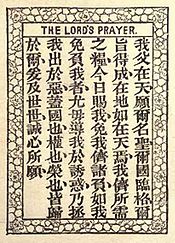The Ten Marks of a Flesh-Pleaser
By: Richard Baxter
The signs of a flesh-pleaser or sensualist are these:
1. When a man in his desire to please his appetite, does not do it with a view to a higher end, that is to say to the preparing himself for the service of God; but does it only for the delight itself. (Of course no one does every action conciously with a view to the service of God. Nevertheless, the general manner or habit of a life spent in the service of God is absent for the flesh-pleaser.)
2. When he looks more eagerly and industriously after the prosperity of his body than of his soul.
3. When he will not refrain from his pleasures, when God forbids them, or when they hurt his soul, or when the necessities of his soul call him away from them. But he must have his delight whatever it costs him, and is so set upon it, that he cannot deny it to himself.
4. When the pleasures of his flesh exceed his delights in God, and his holy word and ways, and the expectations of endless pleasure. And this not only in the passion, but in the estimation, choice, and action. When he had rather be at a play, or feast, or other entertainment, or getting good bargains or profits in the world, than to live in the life of faith and love, which would be a holy and heavenly way of living.
5. When men set their minds to scheme and study to make provision for the pleasures of the flesh; and this is first and sweetest in their thoughts.
6. When they had rather talk, or hear, or read of fleshly pleasures, than of spiritual and heavenly delights.
7. When they love the company of merry sensualists, better than the communion of saints, in which they may be exercised in the praises of their Maker.
8. When they consider that the best place to live and work is where they have the pleasure of the flesh. They would rather be where they have things easy, and lack nothing for the body, rather than where they have far better help and provision for the soul, though the flesh be pinched for it.
9. When he will be more eager to spend money to please his flesh than to please God.
10. When he will believe or like no doctrine but "easy-believism," and hate mortification as too strict "legalism." By these, and similar signs, sensuality may easily be known; indeed, by the main bent of the life.












